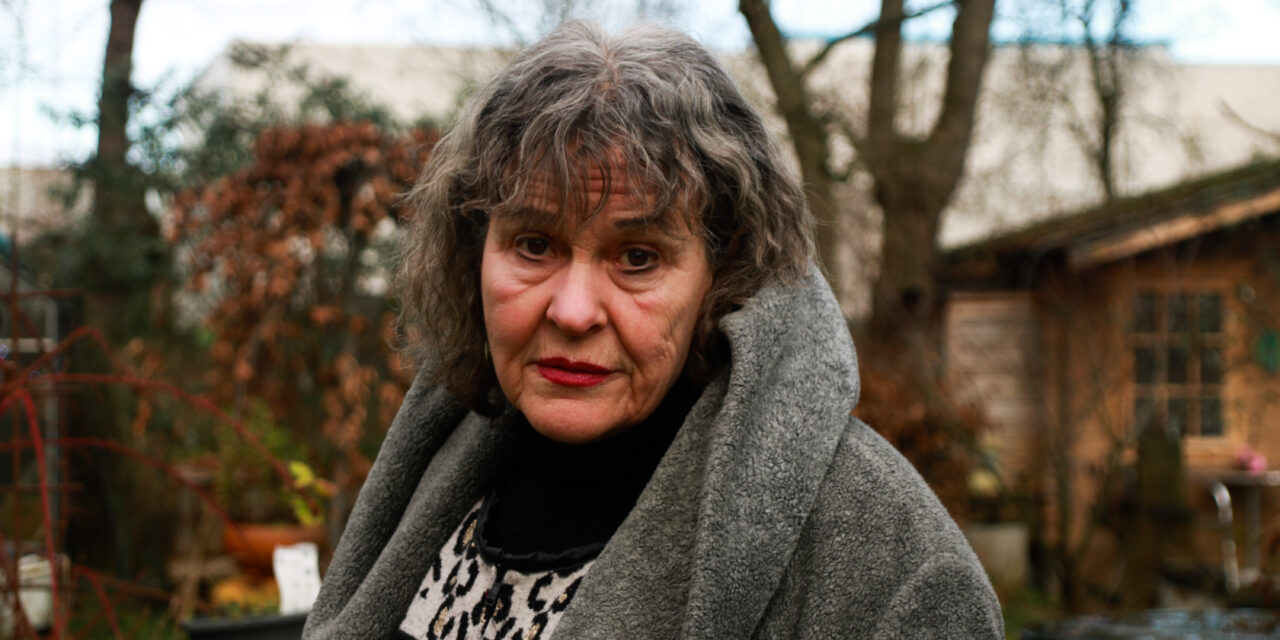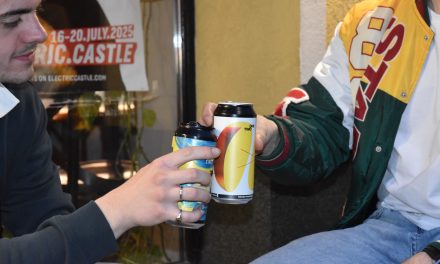With abortion legal up to 24 weeks, the Netherlands is one of the most liberal countries when it comes down to abortion rights. However, it being legal, doesn’t mean it’s a right without shame, taboo and anti-abortion groups protesting for the right to change. Ever since Trees Luiten (71) was young, she invested her time in fighting for human and women rights. Now, at her 71st, Trees is still an activist and supports women in their way to the abortion clinics.
The growing resistance for the current abortion law causes disturbance around the abortion clinics and in the lives of the women choosing for abortion. Especially in the recent years the protest of the anti-abortion groups has grown. Groups of supporters gather together at the clinics and stand there with big bloody posters of embryos. Sometimes there are not loudly protesting, but quietly trying to persuade the women to choose a different path and trying to talk them out of their abortions.
Researchers from the University of Tilburg in the Netherlands explain in the Dutch newspaper Parool the reasoning for the grow of resistance against abortion. They found out that the new generation is more critical about abortion than the previous generation. For example, 8.1 percent of people in their twenties and even 11.5 percent of people in their thirties think that abortion is rarely or never justified. In people in their fifties and sixties, that percentage is slightly above 7 percent.
To protect the women, the government came with the idea of ‘bufferzones’, meaning that the protestors are not allowed to stand right in front of the clinics. “But for now, only a clinic in Haarlem has a regulation where the protestors are not allowed to talk to the women and another clinic in Zwolle is working on a regulation”, Monique Ophei, abortion doctor and head of the Dutch Society of Abortion Doctors, explains. “But nationally the ‘bufferzones’ are still only a plan.”
Abortion Buddies
This is why two Dutch human rights organizations ‘De Bovengrondse’ and ‘Het Humanistich Verbond’ gathered together and set up the project of Abortion Buddies. An Abortion Buddy is a person who is an unbiased support for women on the day of their abortion. The project started in March 2020 with a pilot program in The Hague and Rotterdam. In the two cities, 22 women and men are ready to guide women to the clinics. The buddies are handpicked by the organizations, trained by abortion doctors like Monique and follow training classes where they practice real life moments that happen around the abortion clinics. Trees is one of these 22 women and men who are helping the women.
Trees her motivation however didn’t come from an experience with abortion herself but came from living through the second feministic wave and experiencing the legalization of abortion in 1984. Because before 1984, abortion was illegal in the Netherlands. Years upon years of protesting, women throwing themselves of stairs to terminate their pregnancies – and harming themselves in the process – and illegal abortion doctors and clinics were needed to force the government to legalize abortion in the early 80s.
We must be very alert that our progressive country does not fall back into conservative values
There was however no spike in numbers of abortions after the legalization. “We are still one of the countries where the abortion rate is the lowest and where almost everyone has access to a safe abortion,” Monique explains. The research of Rutgers supports this statement. On their site they state that the Netherlands in 2018 had an abortion rate of 8.8. This means that 8.8 out of 1000 women aged between fifteen and forty-five terminated a pregnancy because it was undesirable. As the Guttmacher Institute researched in 2017, most other Western European countries have a higher abortion rate. Spain has a rate of 9, Norway and Denmark of 12, France of 15 and Sweden of 18. Partly thanks to good information, good access to reliable contraception and proper use of this, the number of abortions is relatively low in the Netherlands, finds Rutgers.
Abortion is however still in the Criminal Code. This is something the pro-choice group has been fighting to get rid of. Though, it doesn’t complicate the access to a legal abortion. “It is only a crime if you don’t do it according to the Termination of Pregnancy Act.” Under this act abortions may be performed by an abortion doctor up to the 24th week of pregnancy, ‘the point at which the fetus becomes viable outside the mother’s womb’, as the Ministry of Health, Welfare and Sport states on their website. “It’s contradicting and we would love to get rid of it, but because of the Termination of Pregnancy Act we as abortion doctors can do our jobs. That is what counts in the end.”
The picking processes
Trees also wants to see this criminal law get removed, but for now she helps the women by being their unbiased support. From being a passive activist during the second feministic wave, Trees went to being an active activist in the 21st century. “I was already a member of ‘De Bovengrondse’ and so when I saw they were looking for volunteers for an Abortion Buddy project, I didn’t doubt once and applied.”
Their pilot program was already full when Trees e-mailed, but they decided to let her into it anyway. “I am so grateful for that. I felt such a big urge to help these women. Women are vulnerable, perhaps even in one of their most vulnerable positions, when they are walking to the abortion clinics. Having to do that without a support person or with someone that does not make you feel comfortable, is extremely hard. That’s where I, as an Abortion Buddy, come in.” On the website of the Abortion Buddies there are photos of all the buddies, including Trees’. Women who want support can look on the website, scroll through the photos, read the descriptions and choose the person they feel comfortable with. This is why the buddies differ in age, origin, gender and personality, to give a very broad selection.
Whenever the women picked someone, a call between the woman and the buddy is arranged. “I am there to answer their questions and be their support, without any judgement. The women don’t have to tell me everything about their reasons for an abortion, because it doesn’t matter. I am their support, no matter what and I am there so that they won’t have to do it alone.” The most important thing for Trees is that the women feel at ease by her side.
I am there to be a support without any judgment about their choice
The abortion
After details like dates and places are set, Trees and the woman meet up on the day of the abortion, usually nearby the clinic. Sometimes Trees walks around for a bit with the woman and has a chat, but sometimes she is just there to guide her to the clinic and to protect her from pro-life supporters. “One time I was at the clinic early and saw somebody standing in front of the clinic. I thought she was perhaps waiting on someone inside or waiting to go in herself. Till I noticed the flyers she was holding in her hand. Anti-abortion flyers. There weren’t covered with bloody pictures, but it was more of a ‘silent’ protest, almost unnoticeably trying to talk the women out of it,” tells Trees. “Vulnerable women.” That this has an effect on the women is clear knows Monique. She tells how women walk into the clinics sometimes completely sad or distraught, because of what they have experienced walking into the clinic. Trees does state how she finds that in this country, anyone can have and share their opinion, but not front of the clinics where women are the most vulnerable.
Aside from the possible protestors, women also deal with a lot of shame about their abortions and experience a big taboo. As if they are not allowed to talk about it and just have keep silent. Someone who went to the clinic for an abortion and experienced this feeling of shame and taboo, is Celine Elisa Kleijwegt (23). She implemented the feelings she had after the abortion in a theater piece.
And that’s where Trees tries to protect the women from. She wishes to be a support where the women don’t have to feel ashamed or feel like they are doing something wrong. After the meeting Trees guides the women to the door and wishes them good luck. Before COVID-19, abortion buddies were allowed inside. But to protect both the women and the doctors working there, it has to end with a goodbye at the front door. “Saying goodbye is always hard, but when you already have to say goodbye at the door, it’s tough. I feel for the women, as they are going into the unknown and undoubtably it is hard for them. And for me, it feels a bit like letting go.”
Watch out and stay alert
To give the women a support and an unbiased person to talk to, is exactly why Trees chose to be an Abortion Buddy. As for now she guided two women to the clinics since she started volunteering as a buddy. “I have always worked as a victim supporter, but after my retirement I had all the time in the world to help more people and it’s a beautiful thing to do. But it is also painful that it is still necessary in the day and time we live in. Women should be able to go to the clinics and not be called baby murderers or be harassed for the extremely brave decision they are taking.” Trees believes that for now, the Abortion Project is enough, but she will keep fighting for a more accepting way of thinking when it comes down to abortions. “Nothing can be taken for granted. We will always have to stay awake, be alert and stay fighting. Because the right to have a legal and safe abortion is so important, we can’t let that be taken away again.”
Monique agrees with Trees that legal and safe abortion is something to keep looking out for and keep fighting for. Projects like the Abortion Buddies are helping and Monique describes it as a really beautiful step into the right direction. “But you have to always have to watch out for changes and be alert. The pro-life supports are a small group, but they have a lot of resources. It are often young people that are more conservative, but still, I don’t think the current abortion law will change very quickly. Despite the opposition, it is not deteriorating. But it is something you have to keep fighting for, because there is an opposition with powerful resources that wants to go back to before 1984.”




